Since 1992 a marine turtle conservation and monitoring project has been conducted on the beaches of Northern Cyprus. Here the endangered green (Chelonia mydas) and loggerhead (Caretta caretta) turtles nest. This is a very well established project conducting excellent research and providing invaluable experience for under-graduate students (www.seaturtle.org/mtrg/projects/cyprus and www.cyprusturtles.org). Each year self-funded volunteers work on this project. This project is carried out in the northern part of the island inhabited by Turkish Cypriots. They are an incredibly friendly nation and it is an extremely safe place to stay.
Project Staff: The project is a collaboration between the University of Exeter’s Marine Turtle Research group (MTRG) which has established and collaborated with numerous monitoring and research projects around the world, and the Society for the Protection of Turtles in Northern Cyprus (SPOT).
The project is led by Sophie Davey under the guidance of Dr Annette Broderick and Prof. Brendan Godley (MTRG) and Robin Snape, Dr Wayne Fuller, Dr Ozge Ozden and Kutlay Keço (SPOT).
Volunteers: Volunteers working on the project are actively involved in both research and conservation activities of the project. The project runs from early-May until late September. In May, June and July activities involve monitoring of beaches at night at our main base at Alagadi on the north coast of the island. Females are observed nesting, measured and tagged (with flipper, identichip and often satellite tags or data logging devices) and their behaviour recorded. Other beaches around the island are monitored during the day. An assessment is made of the previous night’s turtle activities and all nests are screened to reduce predation. During August and September at Alagadi, nests are monitored at night for signs of hatching. On the remaining beaches hatched nests are observed during the day and excavated to release any remaining hatchlings and assess the success of nests. In addition to this work, a large effort goes into education and increasing public awareness. At our main base we have an information centre, which is open to the public. Here we present information, and arrange small groups to accompany us to the beach at night to witness nesting and hatching.
We are looking for fit and healthy volunteers that do not mind sleeping in basic accommodation. You must be able to get on well with other people and also be prepared to cook and clean. You do not have to be a science student, however, all volunteers should have a basic knowledge of marine turtle biology and the research findings of the project by the time they come out to Cyprus (for a list of publications please see <http://www.cyprusturtles.org/publications.php>). In addition, knowledge of Turkish would be invaluable. It is important to stress that you must be fit to partake in this work. You should expect to be walking up to 10km a day/night in temperatures of 30-40 °C.
Medical questionnaire: If your application is successful and you are offered a place on the project you will also be required to fill out a medical questionnaire. This information is confidential and in no way affects your offer of a place. This information will only be available to the project staff listed above so that they are aware of any allergies or conditions you have prior to your arrival in Cyprus. Project staff may wish to discuss how you will cope with a medical condition when in Cyprus.
Dissertations/Research Projects: We only permit University of Exeter students (Cornwall campus) to undertake dissertations/honours projects in Cyprus under the supervision of Drs Broderick and Godley and as we limit the number of projects each year, priority is given to returning students that have already worked on this project. We appreciate that students from other universities would like to conduct research projects whilst in Cyprus, but managing such additional projects can compromise the main research activities. It is however possible for your time in Cyprus to count towards a student placement, but this must be discussed as soon as you are offered a place and must also require no additional activities whilst in Cyprus.
Costs: Volunteers are asked to contribute £650. This covers all costs for a 6-8 week stay; food, accommodation and transport in Cyprus. In addition, this money helps to finance the involvement of local students. This does NOT include travel to Cyprus or travel insurance, which must be arranged by each individual. Copies of insurance documents must be provided before arrival. You are welcome to attempt to raise your personal contribution from fund-raising events or sponsorship. It is also worth contacting your University to explore the possibility of Erasmus funding. Turkish Cypriot citizens will not be asked to contribute financially for their placement, but are welcome to make a contribution.
Timings: The project runs from May5th until October 5th. Please make it clear on your application form between which dates you are available. We have 70 positions available for 2017 and you will have a greater chance of being selected if you are available for periods including May to early June or from late September to early October.
Accommodation: Our accommodation consists of a field base, (two small houses, toilet blocks, an information room and a separate office and storage space) 250m from our main nesting beach at Alagadi, and has running water and electricity. You must be prepared to share a mixed sex dorm with up to 10 others. In addition we have a base on the west coast of the island where 3 to 7 personnel are rotated. This is rented accommodation and varies from year to year but is normally a small Cypriot house with running water and electricity.
Age restrictions: There is no upper age restriction. Volunteers travelling from overseas must be 18 or over. Volunteers from North Cyprus must be at least 16 years old but will require parents/guardians to complete a written consent form.
Applications are now invited for voluntary field assistants in the year 2017.
The closing date for applications is Friday December 16th 2016.
Project Staff: The project is a collaboration between the University of Exeter’s Marine Turtle Research group (MTRG) which has established and collaborated with numerous monitoring and research projects around the world, and the Society for the Protection of Turtles in Northern Cyprus (SPOT).
The project is led by Sophie Davey under the guidance of Dr Annette Broderick and Prof. Brendan Godley (MTRG) and Robin Snape, Dr Wayne Fuller, Dr Ozge Ozden and Kutlay Keço (SPOT).
Volunteers: Volunteers working on the project are actively involved in both research and conservation activities of the project. The project runs from early-May until late September. In May, June and July activities involve monitoring of beaches at night at our main base at Alagadi on the north coast of the island. Females are observed nesting, measured and tagged (with flipper, identichip and often satellite tags or data logging devices) and their behaviour recorded. Other beaches around the island are monitored during the day. An assessment is made of the previous night’s turtle activities and all nests are screened to reduce predation. During August and September at Alagadi, nests are monitored at night for signs of hatching. On the remaining beaches hatched nests are observed during the day and excavated to release any remaining hatchlings and assess the success of nests. In addition to this work, a large effort goes into education and increasing public awareness. At our main base we have an information centre, which is open to the public. Here we present information, and arrange small groups to accompany us to the beach at night to witness nesting and hatching.
We are looking for fit and healthy volunteers that do not mind sleeping in basic accommodation. You must be able to get on well with other people and also be prepared to cook and clean. You do not have to be a science student, however, all volunteers should have a basic knowledge of marine turtle biology and the research findings of the project by the time they come out to Cyprus (for a list of publications please see <http://www.cyprusturtles.org/publications.php>). In addition, knowledge of Turkish would be invaluable. It is important to stress that you must be fit to partake in this work. You should expect to be walking up to 10km a day/night in temperatures of 30-40 °C.
Medical questionnaire: If your application is successful and you are offered a place on the project you will also be required to fill out a medical questionnaire. This information is confidential and in no way affects your offer of a place. This information will only be available to the project staff listed above so that they are aware of any allergies or conditions you have prior to your arrival in Cyprus. Project staff may wish to discuss how you will cope with a medical condition when in Cyprus.
Dissertations/Research Projects: We only permit University of Exeter students (Cornwall campus) to undertake dissertations/honours projects in Cyprus under the supervision of Drs Broderick and Godley and as we limit the number of projects each year, priority is given to returning students that have already worked on this project. We appreciate that students from other universities would like to conduct research projects whilst in Cyprus, but managing such additional projects can compromise the main research activities. It is however possible for your time in Cyprus to count towards a student placement, but this must be discussed as soon as you are offered a place and must also require no additional activities whilst in Cyprus.
Costs: Volunteers are asked to contribute £650. This covers all costs for a 6-8 week stay; food, accommodation and transport in Cyprus. In addition, this money helps to finance the involvement of local students. This does NOT include travel to Cyprus or travel insurance, which must be arranged by each individual. Copies of insurance documents must be provided before arrival. You are welcome to attempt to raise your personal contribution from fund-raising events or sponsorship. It is also worth contacting your University to explore the possibility of Erasmus funding. Turkish Cypriot citizens will not be asked to contribute financially for their placement, but are welcome to make a contribution.
Timings: The project runs from May5th until October 5th. Please make it clear on your application form between which dates you are available. We have 70 positions available for 2017 and you will have a greater chance of being selected if you are available for periods including May to early June or from late September to early October.
Accommodation: Our accommodation consists of a field base, (two small houses, toilet blocks, an information room and a separate office and storage space) 250m from our main nesting beach at Alagadi, and has running water and electricity. You must be prepared to share a mixed sex dorm with up to 10 others. In addition we have a base on the west coast of the island where 3 to 7 personnel are rotated. This is rented accommodation and varies from year to year but is normally a small Cypriot house with running water and electricity.
Age restrictions: There is no upper age restriction. Volunteers travelling from overseas must be 18 or over. Volunteers from North Cyprus must be at least 16 years old but will require parents/guardians to complete a written consent form.
Applications are now invited for voluntary field assistants in the year 2017.
The closing date for applications is Friday December 16th 2016.
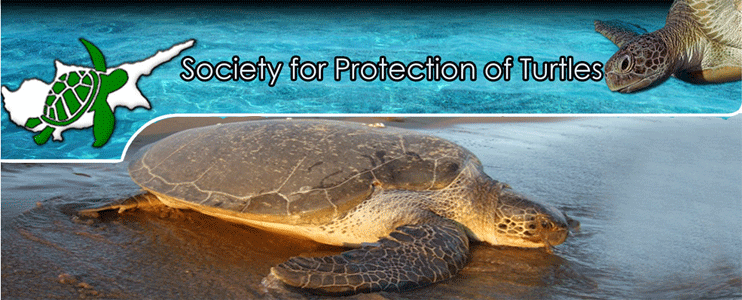
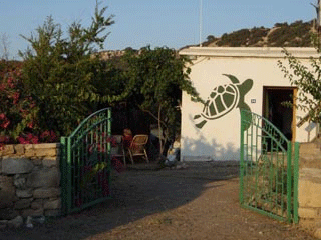
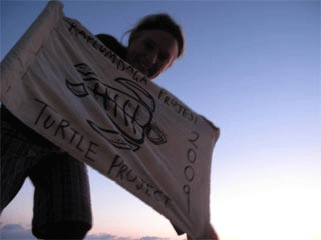
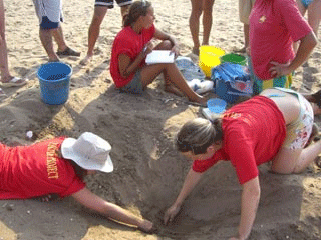
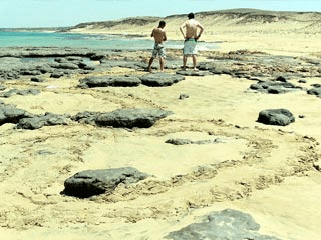
 RSS Feed
RSS Feed
